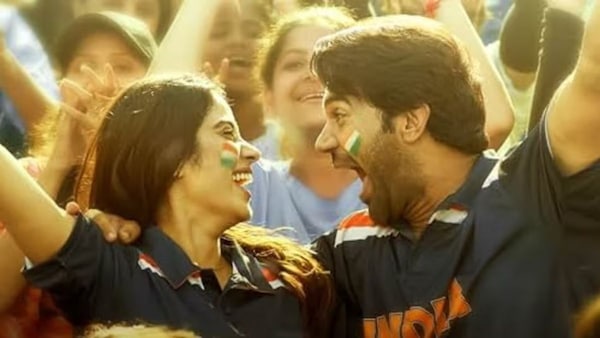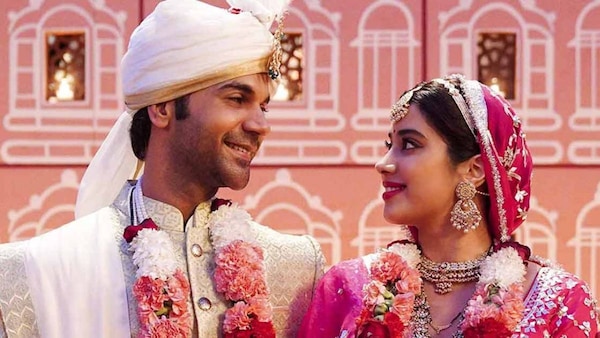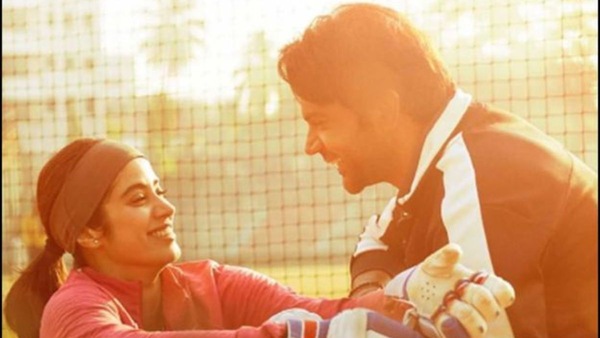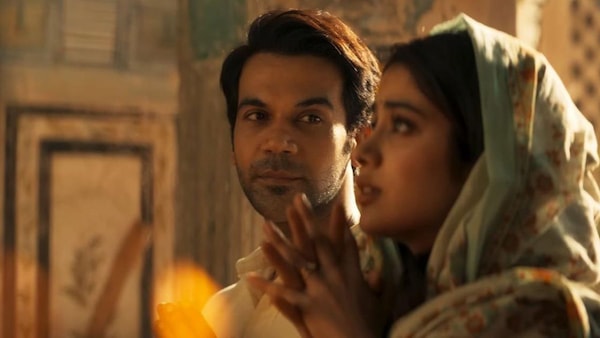Mr. & Mrs. Mahi Is An Impressive Marriage Story That Floats More Than Sinks
Mr. & Mrs. Mahi is a marriage story in the cast of a sports film where the sport serves as a literal binding factor and a metaphor for partnership.

Still from Mr. & Mrs. Mahi. YouTube screengrab
Last Updated: 01.03 AM, May 31, 2024
SHARAN SHARMA's Mr. & Mrs. Mahi is two films in one. On one hand, it is about a timid girl who finds herself after spending a lifetime listening to everyone else. She is a doctor and though her father amplifies her achievements, he has little idea what she really desires. On the other hand, it is about a failed cricketer who struggles to prove his worth to his resentful father. The day his life was fated to change, fate turned hostile and relegated him to a commoner when he aspired to be a star.
On paper, Mr. & Mrs. Mahi is fronted by two people, Mahendra and Mahima Aggarwal (both dubbed as ‘Mahi’), who could be protagonists in their own films. A little tilt here and there, and the story could have been hijacked by either of the underdogs. The bones are all there. Mahendra is the black sheep of his family. His father Hardayal Aggarwal (an ever-watchable Kumud Mishra) runs a sports shop in Jaipur but bristles at the sight of his son holding a bat. Mahendra (Rajkummar Rao), he believes, has no talent and will do better as a salesman at his store. The crisis of conviction gets resolved once marriage happens. Mahendra’s wife, Mahima places faith in him. She willingly parks her worries aside to focus on her husband’s problems. Her crabby boss and a bad day at work can wait if Mahendra is having a bad day. The roadmap from here is familiar: buoyed by her belief, he will fulfil his life’s ambition of playing for India.
Then there is Mahima (Janhvi Kapoor), a dutiful daughter and wife, who is told one day that she plays cricket well. Many years ago, her father had told her to concentrate on studies and she had obeyed. Later, when her husband recognises her talent and proposes to coach her, she leaves her day-job. She gets selected in the state team but as she succeeds, her husband feels left behind. Mahendra brims with bitterness and poses as an adversary that the under-confident Mahima ought to overcome, or turn around, in her path to glory.

The film Sharma has made, however, lies somewhere in the middle. It is neither about Mahendra nor Mahima and simultaneously it is about both. As the title suggests, Mr. & Mrs. Mahi is a marriage story in the cast of a sports film where the sport — cricket in this case— serves as a literal binding factor (the love of the game brings Mahima and Mahendra closer) and a metaphor for partnership. This shift in gaze benefits the film tremendously and imbues it with ingenuity that subverts a template sports film and refashions a jaded love story.
As an upshot, the characters are accorded the freedom to be unheroic and unlikeable — attributes that the above kind of films would not entertain — with none carrying the burden to be or know better. For instance, it is easy to pity Mahendra and sympathize with Mahima. He is a technically-sound average player vying for the limelight and she is talented with little confidence — both unlikely to soar in cricket alone. In any other narrative, their individual inadequacies would have demanded the other to reform but in a marriage story, where both partners form one unit, it just fits.
Written by Sharma and Nikhil Mehrotra, Mr. & Mrs. Mahi works best as a marital tale that unfolds attuned to the advantage of dependency and companionship. This is not to say that the film compromises on gender ideals but that it underlines the many ways in which a relationship, built on imperfect isms, can empower. For instance, Mahendra aspires to live his dream of becoming a cricketer through Mahima (in a differing but not different light, Luca Guadagnino’s crafty Challengers comes to mind) but as the film unravels and he reckons with his blindspots, the lopsided burden morphs into mutual reliance. Similarly, Mahima gathers the courage to confront parental opposition once she has the support of her husband. These are nice touches that say a lot with little and weave in commentaries as subtexts in the larger context of marriage.

Having said that, Sharma’s sophomore outing is not a perfect film. A lot of the dialogues are patchy and on the nose. When Hardayal is asked why Mahendra’s picture is not there on the wall, he replies with something as generic as only those who have hit sixers in life have their pictures up there, later when Mahima acknowledges the role Mahendra played in her life, she indulges in a monologue that is so literal (she says he is the ‘timing’ to her cover drive) that it feels straight out of a Zoya Akhtar film. There are also other issues. The character of Mahendra’s overachiever younger brother (he is probably a reality star) feels redundant even though he was included to probably justify their father’s displeasure with his oldest son. Also, in an earlier scene we see Mahima watching a game and being aware of the technicalities but later, when being coached, she appears rather clueless for someone so clued into cricket. And finally, the resolution between the father and the son, and Mahendra’s own self-realization comes too easily, almost reducing an age-old problem like patriarchy to a simplistic rendering.
If these do not upend Mr. & Mrs. Mahi, it is because the actors are tremendous, capable of taking even stock lines and making them sing. Rao is exceedingly watchable as a man tired of losing to fate and resorting to desperation once talent fails him. There is a particular scene when Mahima gets selected at the state level under his tutelage and he goes to meet his father with a spring in his feet. Rao does it so well, channelling a comicality reminiscent of his turn in Ashwiny Iyer Tiwari’s Bareilly Ki Barfi (2017). As Mahendra, he plays it admirably straight (even when he makes reels to tell the world that he is Mahima’s coach and does it wearing a hoodie that says #MaahiVe) which lends his character tragi-comic undertones. Even then it is Kapoor who really shines.
Unfortunately, her role as this timid wife to a more brazen man brings to mind the disaster that was Nitesh Tiwari’s Bawaal (2023) but as the film progresses, Kapoor makes the character her own. As Mahima, she is supremely believable as this sheltered woman whose first instinct upon being praised is to look at her husband’s face and search for a smile. This marks her second collaboration with Sharma (they had worked in his 2020 debut film, Gunjan Saxena: The Kargil Girl before this) and culminates in one of her better performances. The filmmaker mines her innocence without making it look like naivete and showcases her naivete without making her look stupid. It is a balancing act that Kapoor does immensely well, using her eyes and voice to do most of the heavy lifting. She looks equally competent with the bat and brings a distinct timidity, which ties to her character, even when dominating the field.

On the surface, Sharma’s second film seems like an extension of his debut. A young girl discovers herself under male guidance. In Gunjan Saxena, an aspiring pilot finds support and wisdom in her father. In Mr. & Mrs. Mahi, this central theme seems reiterated when Mahendra steps in to coach Mahima. But the filmmaker has evolved and it shows in how he chooses to inspect his legacy and trace selfish seeds in selfless acts. The film he has made, however, is not about elevating a hero and diminishing a villain. Instead, it is about two people who make each other better by being together, much like what happens at a cricket pitch on a good day. Or, in (good) companionships.
